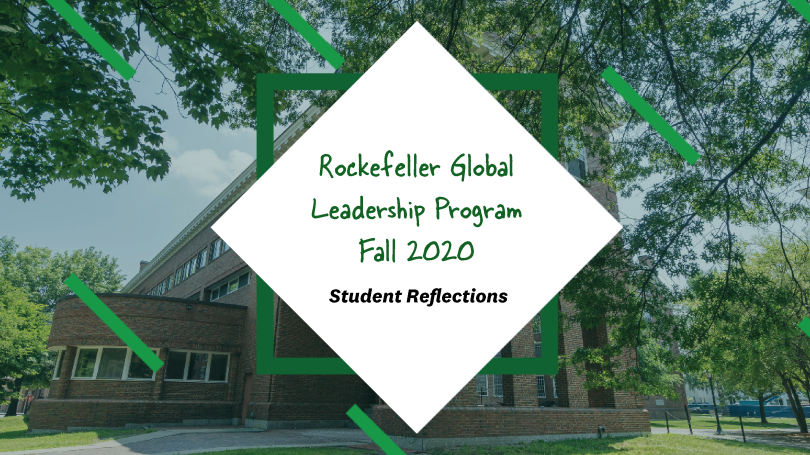
- Public Policy
- Leadership
- Funding
- News & Events
- About the Center
Back to Top Nav
Back to Top Nav
Back to Top Nav
Back to Top Nav
Globalization and its effects on politics and trade have become an increasingly widespread topic of conversation in recent years, but the impact of multiculturalism on everyday interactions are still in the process of being realized. During the weekly sessions of the Rockefeller Global Leadership Program, I was able to learn how to define perspectives and guide conversations through a multicultural lens as well as analyze the greater implications of cross-cultural communication on a larger scale. Facilitating awareness of different individuals' backgrounds is a crucial aspect of effective leadership and good teamwork, and RGLP provided the chance to hone these skills in the pursuit of understanding and professionalism.
Modern globalization has been the catalyst for more intercultural communication than ever before; technology, travel, and immigration have contributed to an international community in every country. The tools necessary to build a successful dialogue across differences can be developed through greater self-awareness and a genuine effort to work towards an expansive and adaptable worldview. Unfortunately, hostility between countries has also led to a rise in insular and nationalistic beliefs, as well as a distrust of outsiders. These tensions are only heightened by the economic and political competition between national governments who may be intent on increasing their own power at the expense of cooperation. This is where intercultural competency comes into play: it is the job of global leaders to transcend national borders and promote leadership across different cultures, emphasizing communication instead of conflict.
I believe that having conversations about how to engage with people that we might disagree with is critical when considering the ways in which these ideas can be applied to everyday interactions. The lenses through which everyone experiences their lives are very different from each other, and we would do well to remember this fact when engaging with anyone in our own lives — including family, friends, and fellow students — who may very well be undergoing difficulties at any point. As a first-generation child of immigrants, growing up in a predominantly white community has made these cultural and personal differences all the more apparent in my life as well. However, my time at Dartmouth and in the RGLP program has facilitated many interactions with those who are devoted to the goal of increasing their intercultural competency, allowing me to become more at ease with the differences between my experiences and others' perspectives and hopefully increasing my preparedness to adapt to unfamiliar — and perhaps uncomfortable — situations in the future.